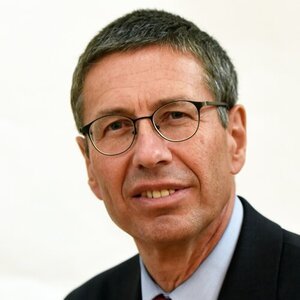Obviously politics should be informed by and based on science. A field in which this is definitely a must is disarmament. In the process that led to the Treaty on the Prohibition of Nuclear Weapons and then in its negotiations scientific evidence played a major role.
In 2013 and 2014 the three conferences on the humanitarian consequences of nuclear weapons in Oslo, Nayarit and Vienna presented scientific findings on the effects of nuclear weapons. Researchers from various fields like medicine, physics, computer sciences, systems analysis and law gave account of their findings. This overwhelmingly new research results corroborated that also with today's technological advancements no emergency relief could cope with the tremendous human suffering and environmental degradation stemming from a nuclear weapons explosion. So the only option is to prevent such an event from ever happening.
There is no other way to guarantee that no nuclear weapons explosion will happen - be it intentionally or unintentionally, e.g. by an error or accident - than to eliminate nuclear weapons. As former Austrian Federal President Heinz Fischer has said at the United Nations: "We have to eliminate nuclear weapons before they will eliminate us." In order to achieve an elimination of a whole class of weapons, their prohibition is required. This was the case with the other classes of weapons of mass destruction - biological and chemical weapons. Therefore, the Treaty on the Prohibition of Nuclear Weapons was negotiated in 2017 and it entered into force in January 2021. During the negotiations panelists from various scientific fields gave presentations on a number of vital subjects which was a novum in disarmament negotiations. This helped to ensure that the treaty text was based on the latest scientific knowledge. While it is widely known that civil society has played a major role in bringing about this treaty, the impact and contribution of scientists is less known among interested people who did not participate in the negotiations.
When the First Meeting of States Parties to the Treaty on the Prohibition of Nuclear Weapons will be held in Vienna from 22 to 24 March 2022, scientists will have again an important voice in the meeting. Among the issues that will be considered is the length of the period necessary for the destruction of nuclear weapons. Leading scientists from universities like Princeton have already linked up to diplomats to provide them guidance on how and in which timespan nuclear weapons could be safely destroyed. I would expect that the issue of how best to involve scientists into the implementation of the Treaty in a more structured way would also be discussed in Vienna next year. It is amazing that this fundamental debate has not taken place yet in the framework of existing nuclear disarmament treaties. It is high time that scientists are consulted in an open and transparent way on disarmament matters.
Scientific studies have shown the close interconnection of the two greatest threats to the survival of mankind today: nuclear weapons and climate change. The NGO "International Physicians for the Prevention of Nuclear War", awarded with the Nobel Peace Prize, has investigated the effects of a limited nuclear war exploding 100 of the more than 13.000 nuclear weapons held by nuclear armed states today. They would be enough to cause a catastrophic global climate disruption for years and a worldwide famine, putting as many as 2 billion people at risk of starvation. The scientific data have been presented, but will politicians act?
Ambassador Dr. Thomas Hajnoczi graduated as a doctor of law from the University of Vienna in 1977 and was the Director for Disarmament, Arms Control, and Non-proliferation at the Austrian Federal Ministry for Europe and International Affairs - a position he held already in the 1990s. Among his many posts over the years, Hajnoczi served as Deputy Permanent Representative to the United Nations in New York, Ambassador to the Kingdom of Norway, Director for Security Policy in the Ministry, Permanent Representative of Austria to the Council of Europe in Strasbourg and Permanent Representative to the United Nations Office at Geneva. He has been closely involved in several multilateral humanitarian disarmament processes, including the negotiations for the Anti-Personnel Mine Ban Convention and the Treaty on the Prohibition of Nuclear Weapons.


